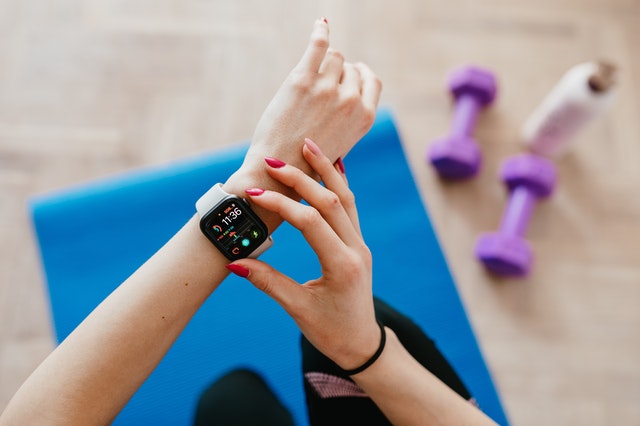Fitness trackers have become popular accessories. These devices, which are worn like a watch, can count the number of steps you take or measure the acceleration your body undergoes throughout the day. Either way, they have become an affordable and easy way to measure your daily activity.
Despite how popular, affordable, and easy to use fitness trackers are, some people are resistant to the addition of another piece of technology into their daily lives. Here are the top four reasons to add a fitness tracker to your workout routine.
1. They could improve activity levels in people with chronic diseases.
One reason to use a fitness tracker is that they could possibly help to improve activity levels in people with chronic diseases. Several studies have shown that people with diabetes and heart disease who used fitness trackers improved their blood sugar levels, blood pressure levels, and weight. Those who were studied were found to have increased their activity levels by 70% by using the fitness trackers. Participants who used step counters were particularly successful, as they increased their daily step count by 85%.
With fitness trackers shown to be so effective in helping those who already have chronic disease, it is possible the devices can also help prevent these conditions. By increasing our activity level, we can maintain healthy blood pressure, lower cholesterol levels, and improve our overall fitness. This is just one good reason to add a fitness tracker to your workout routine.
2. They can help you to adjust your mindset.
Another reason to add a fitness tracker to your workout routine is because it can improve your mindset. Having a growth mindset, which reassures us that consistency and hard work can help us achieve our goals, is crucial to achieving overall fitness, and fitness trackers can help us achieve it. This is because they help us keep track of our consistent hard work over time.
Another way that fitness trackers can be helpful for our mindset is that they can provide us with positive reinforcement. Studies have shown that people who think positively about their levels of fitness not only are more motivated to exercise, but they are also more likely to live longer. Fitness trackers are useful tools for providing this type of performance feedback that can help us feel empowered to tackle our fitness goals.
3. They can help you overcome fitness plateaus.
In addition to helping you to improve your activity level and improve your mindset, fitness trackers can help you overcome fitness plateaus. One condition that can cause a plateau is boredom, but this can be addressed with a fitness tracker. If you use a tracker to note how many steps you take and on which days, for example, you can use this information to change your routine and keep your interest level up.
Another factor that can cause you to hit a fitness plateau is overtraining. Overtraining causes pain and fatigue, which can make you want to stop exercising. However, by using a fitness tracker, you can tell on which days you might have done too much. By having this information at your fingertips, you can avoid overtraining and the pain and fatigue that comes with it, thereby increasing the chances that you’ll successfully stick to your fitness routine.
4. They let us know when it’s time to rest.
Finally, fitness trackers should be integrated into our fitness routine because they can let us know when it’s time to prioritize rest and recovery. In addition to causing fitness plateaus, a lack of rest and recovery can also impact your ability to grow and heal your muscles, as these things only happen during times of rest and recovery. By keeping track of your steps and rates of acceleration, you can determine when you need to give yourself a break.
One aspect of rest and recovery is active recovery. During active recovery, we engage in lighter intensity or shorter workouts that provide blood flow to our muscles without overtaxing them. A fitness tracker can come in handy for active recovery because it can measure either intensity or steps. Both measurements can let us know when we’ve done enough to facilitate active recovery without overexerting ourselves.
If you’d like advice on the best fitness tracker to buy for your fitness goals—whether it’s one that counts your steps or one that measures your acceleration—you can check with a local personal trainer who can also suggest the best brands to try. Once you find the best fitness tracker for you, you’re sure to find it changes your workouts for the better.
